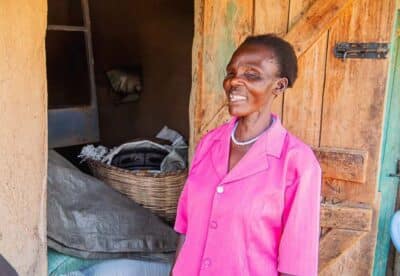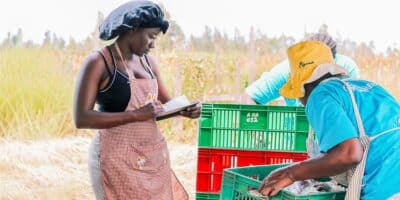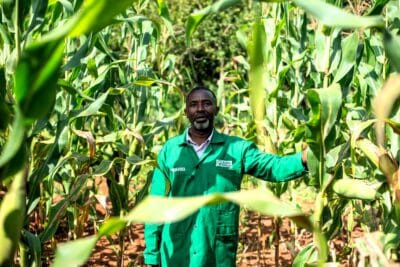News
Kenya
21 March 2025
Agroforestry and carbon markets transform farming in eastern Kenya
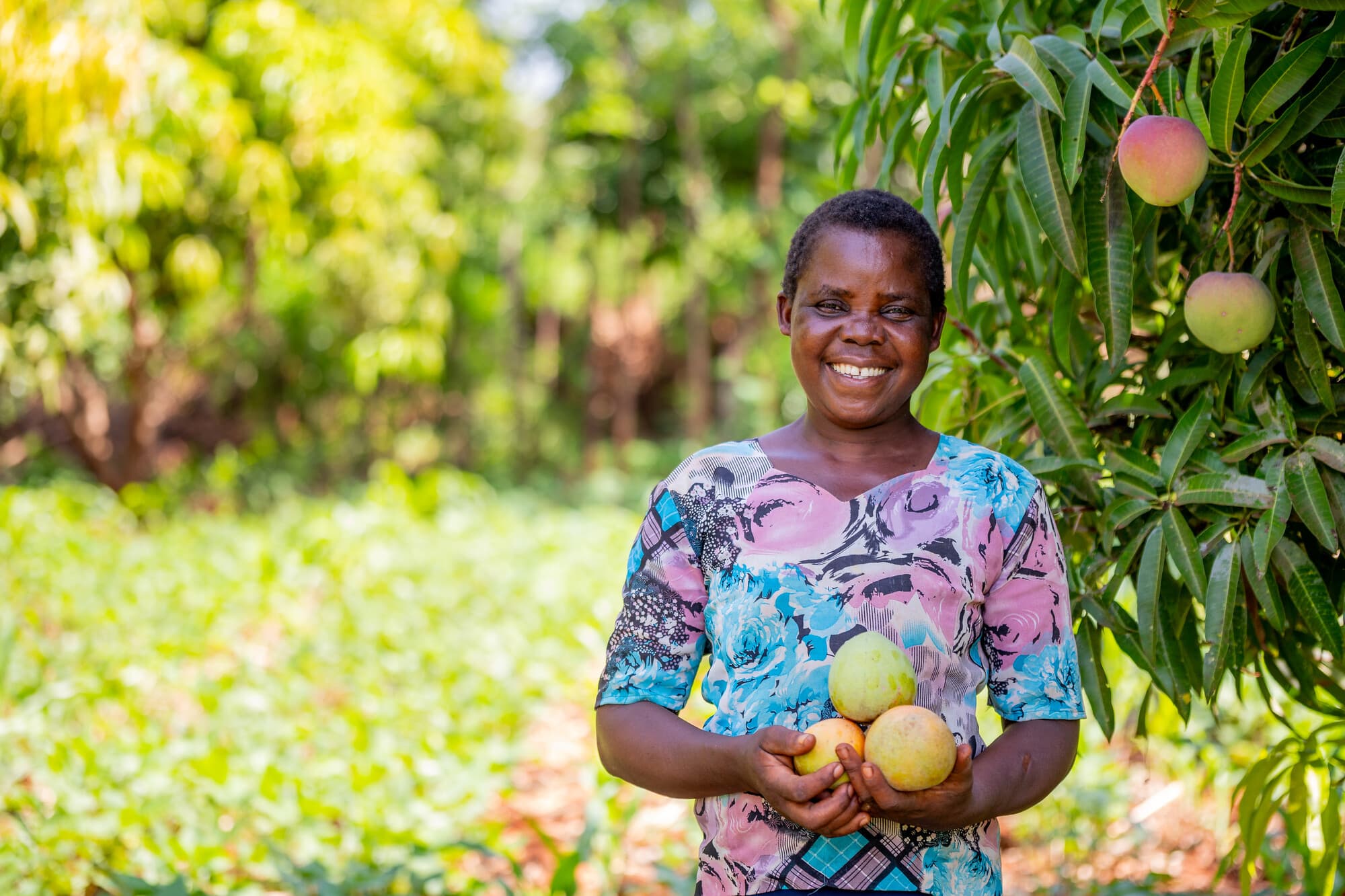
Janet Ngiri at her farm in Tharaka Nithi County.
A report published by international NGO Farm Africa today, International Day of Forests, details how smallholder farmers in eastern Kenya are reaping financial and environmental benefits from an agroforestry project that integrates carbon finance with sustainable agriculture.
The report, Growing green – How agroforestry and carbon markets are transforming farming in eastern Kenya charts the progress of more than 21,500 farmers in Embu and Tharaka Nithi counties who have planted trees and adopted climate-smart farming techniques.
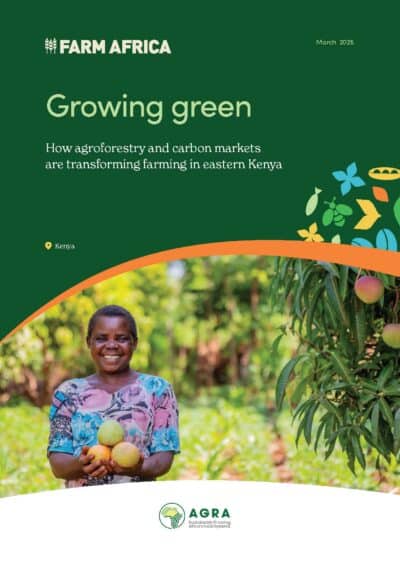
Growing green – how agroforestry and carbon markets are transforming farming in eastern Kenya
More info
Country
Kenya
Key focus areas
Act on climate change
Increase incomes
Protect ecosystems
Growing green – how agroforestry and carbon markets are transforming farming in eastern Kenya
This report charts the progress of more than 21,500 farmers in Embu and Tharaka Nithi counties in eastern Kenya who have planted trees and adopted climate-smart farming techniques.
Download (1.95mb)

Country
Kenya
Key focus areas
Act on climate change
Increase incomes
Protect ecosystems
The farmers have reduced carbon emissions by a total of 24,945 tonnes of carbon dioxide and earned income through the sale of an equivalent number of Carbon Removal Units (CRUs), while contributing to climate change mitigation and soil restoration across 14,175 hectares of land.
This initiative, launched by Farm Africa in 2020 in partnership with Acorn, Rabobank and AGRA, enables farmers to generate revenue from carbon credits while improving biodiversity and agricultural productivity. Eighty per cent of the revenue from carbon credits goes directly to farmers, many of whom have used the earnings to pay school fees, expand farms, and invest in alternative income sources.
“Beyond environmental benefits, the initiative has provided a financial lifeline for local communities."

Mary Nyale
Country Director, Farm Africa, Kenya
The Farm Africa agroforestry initiative aligns with Kenya’s commitment to cut greenhouse gas emissions by 32% by 2030 under the Paris Agreement.
The project integrates strategic afforestation and reforestation efforts with carefully selected tree species such as avocado, mango and nitrogen-fixing plants, enhancing both economic and environmental benefits. Farmers are also trained in sustainable farming practices, financial literacy and carbon credit mechanisms, enabling their long-term self-sufficiency and resilience.
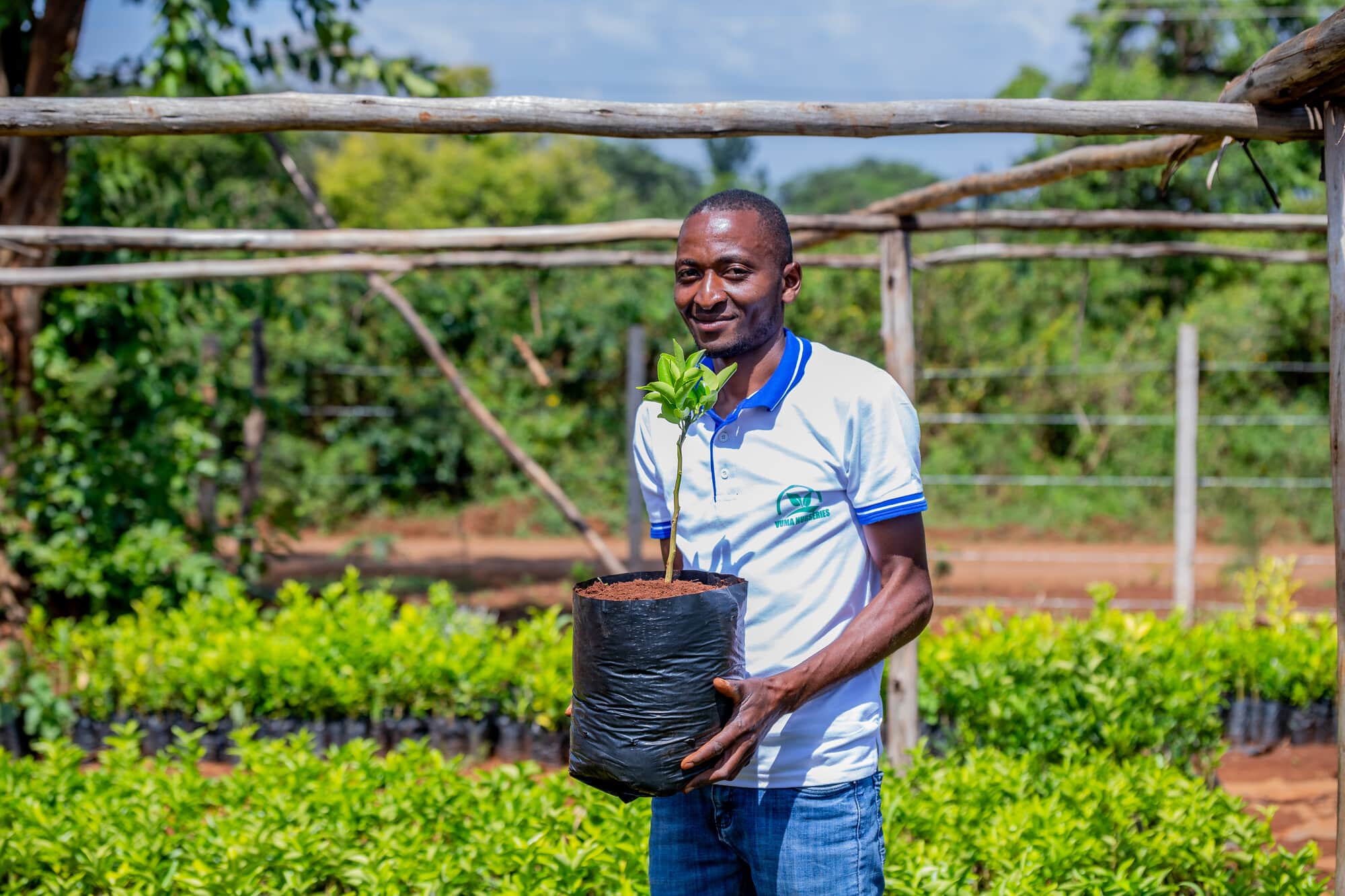
Simon Mwangangi at his tree nursery in Embu County. Photo: Farm Africa/ Bertha Lutome.
The impact has been profound, with improvements recorded in soil health, water retention and biodiversity conservation. Notably, farmers report increased yields, reduced fertiliser use by 20-40%, and a 30-50% boost in soil organic matter.
“Beyond environmental benefits, the initiative has provided a financial lifeline for local communities. Additionally, women’s participation in agroforestry has increased significantly, strengthening economic independence and leadership roles within the community,” says Mary Nyale, Country Director, Farm Africa, Kenya.
Success stories from farmers including Peter Kabuthe, Rosebeth Karauki and Simon Mwangangi highlight the project’s transformative potential. From expanding tree nurseries to scaling up sustainable farming methods, these individuals are leading the way in climate-smart agriculture, while creating jobs and improving livelihoods.

Peter Kabuthe at his farm in Embu County, Photo: Farm Africa / Bertha Lutome
Furthermore, Farm Africa’s partnership with AGRA has played a key role in promoting agroforestry as part of regenerative agriculture. Through this collaboration, farmers are adopting sustainable practices that enhance both their livelihoods and climate resilience.
“Under the Strengthening Regenerative Agriculture in Kenya (STRAK) project, supported by AGRA through financial assistance from the IKEA Foundation, AGRA has partnered with Farm Africa in Embu and Tharaka Nithi counties and with CGA in Makueni and Kitui counties to promote regenerative agriculture interventions that increase farmers’ livelihood and climate resilience. These interventions include diverse agroforestry practices that include but are not limited to home gardens, alley cropping and fruit trees on croplands,” says Abednego Kiwia PhD, Systems Agronomist – Regenerative & Sustainable farming, AGRA.
As Farm Africa continues to scale up the project, the organisation calls for greater investment in sustainable agricultural initiatives and climate action frameworks that benefit both people and the planet.
